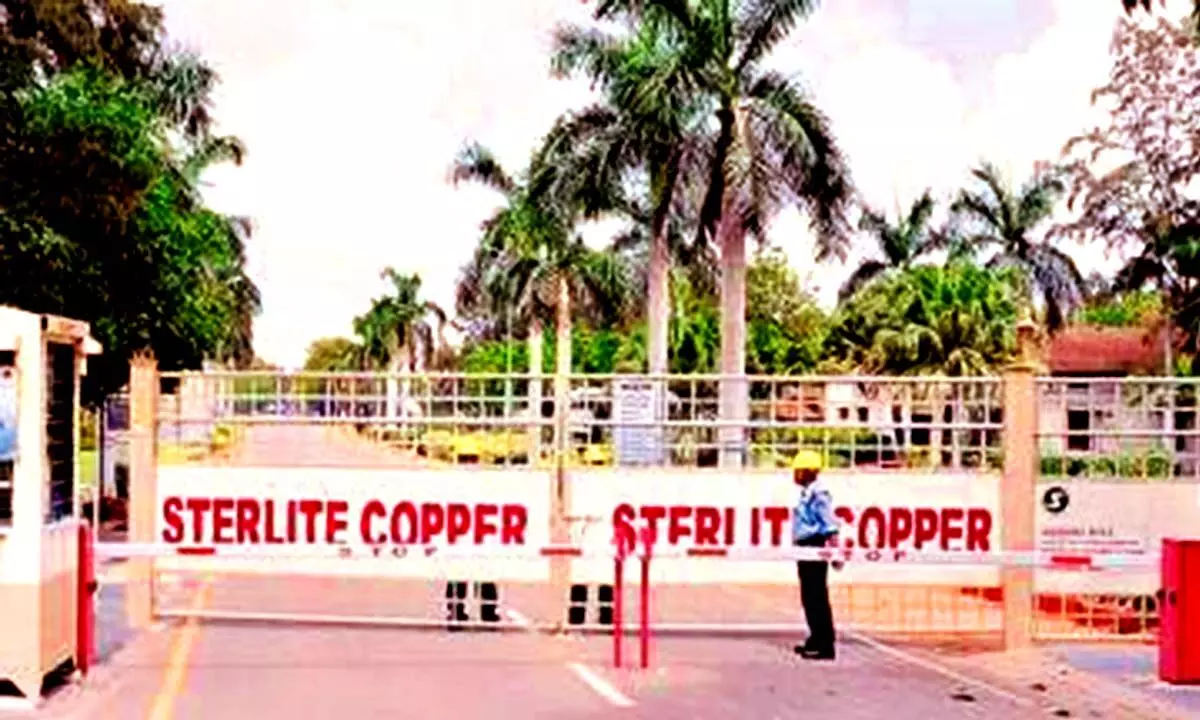Systemic sclerosis killing Tuticorin copper plant
While 5,000 people were directly employed by Sterlite, 25,000 benefited indirectly
image for illustrative purpose

When the Congress-led United Progressive Alliance was in office, there was a lot of talk about 'policy paralysis.' What we are witnessing today is systemic sclerosis, as body-politic and body-economic are not able to create an ecosystem that is conducive for industrialization. Vedanta's decision to sell the Tuticorin copper plant is a testimony to that sclerosis
Last week, Vedanta announced that it would be selling off its Tuticorin-based Sterlite copper plant. The Tamil Nadu government had shut it down four years ago, following a police firing on green activists who were demanding its closure. Thirteen people had died in the firing. The fact that the outstanding issues, primarily environmental, could not be thrashed out in the last four years is a sad commentary on economic management in India at various levels.
The Central government zealously promotes the Make in India programme and self-reliance (Atmanirbhar Bharat). The Tamil Nadu government's website says that its policy is "to maximize the welfare of the people of Tamil Nadu by creating gainful employment opportunities by achieving higher and sustainable economic growth with emphasis on balanced regional development through greater private and public investment in manufacturing and infrastructure development."
There is also reportedly pressure on Tamil Nadu Chief Minister MK Stalin to reopen the Sterlite factory. The locals want it, as evident from the reports that fisherwomen and the Thoothukudi Contractors' Association favour its revival.
Those whose livelihoods depended on the Sterlite plant would also want it to reopen. While 5,000 people were directly employed by Sterlite, 25,000 benefited indirectly.
But the only people who succeed are the environment activists; they are determined to keep the plant shut. One doesn't know if their opposition to the plant is based on facts or animated by ideological concerns.
Against this backdrop, Vedanta recently announced to quit. It said in a statement, "The Tuticorin plant is a national asset which has been catering to 40 percent of our national demand of copper and has played an integral role towards India's self-sufficiency in copper."
It further said, "in the best interest of the country and the people of Tamil Nadu, we are exploring options to make sure that the plant and the assets are best utilized to meet the growing copper demand of the nation."
The shutdown is causing considerable loss to the nation. Minister of Mines, Coal and Parliamentary Affairs Prahlad Joshi said in the Lok Sabha in February 2020 that after the closure of the Sterlite Copper plant at Tuticorin, India became a net importer of copper in 2018-19. The production decreased to 410,000 tonnes in 2019-20 from 830,000 tonnes in 2017-18, he said.
Factories have been shutting down in India with a frightening frequency. As many as five auto majors—Ford India, MAN Trucks, General Motors, Harley Davidson, and UM Motorcycles—shut shop in the last few years. The Federation of Automobile Dealer Association said in September last year that the closure of auto companies in India cost 64,000 jobs and dealer investment worth Rs 2,485 crore.
It is unfortunate that India has not been able to capitalize on the exit of many manufacturing companies from China following the Covid pandemic. Worse, we are not even able to sort out the issues arising out of running factories.
When the Congress-led United Progressive Alliance was in office, there was a lot of talk about 'policy paralysis.' What we are witnessing today is systemic sclerosis, as body-politic and body-economic are not able to create an ecosystem that is conducive for industrialization. Vedanta's decision to sell the Tuticorin copper plant is a testimony to that sclerosis.

